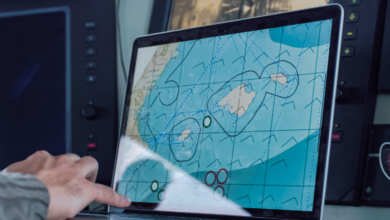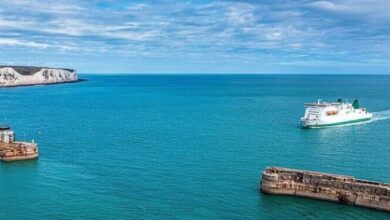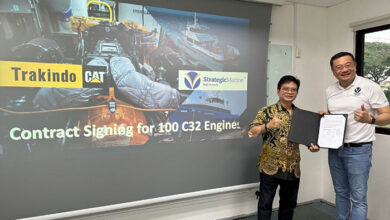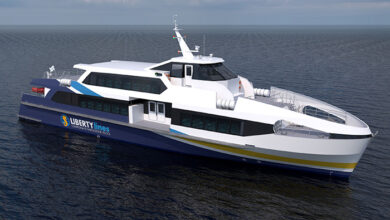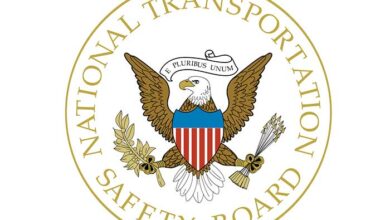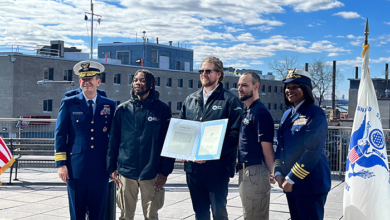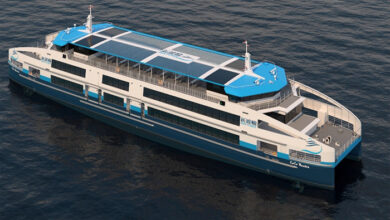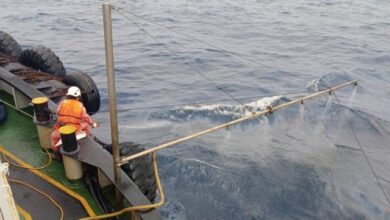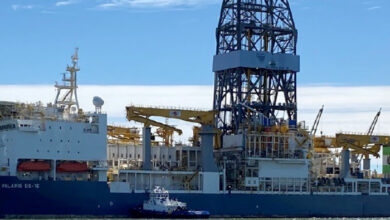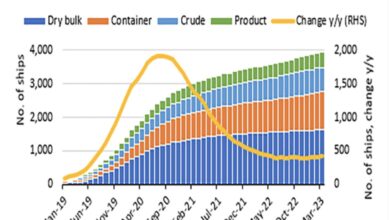Classifications SocietiesHomeNews
Lloyd’s List :Top 10 classification societies 2020

A year with lay-offs and furloughs, coupled with disruptions to surveys and inspections, made it one of the more challenging periods for classification societies in recent times
Familiar faces were among the top in class as the anticipated transition to remote surveying was accelerated in 2020 by the coronavirus pandemic; amid the disruption, shipping’s technical experts continued to provide much-needed support to the industry and to prepare for the future
01 / Knut Ørbeck-Nilssen, DNV GL
The world’s largest classification society sits at the top of its peers for another year. Its leadership in the unitised and general cargoship segments and its wide presence in the tanker market helped it maintain gross tonnage supremacy in 2020.Yet under Mr Ørbeck-Nilssen, DNV GL is also a leader in the field where classification societies are perhaps most valuable to the industry, outside of their primary service: technical insights, expert advice, projections and data provision.
Though DNV GL casts a wide net, this is arguably most obvious when it comes to environmental issues, where DNV GL offers crucial services — like the latest data on scrubber use and alternative fuels.The classification society also remains an outspoken proponent of liquefied natural gas as a transitional fuel for shipping’s decarbonisation move, a discussion that will become increasingly important over the next few years.
02 / Koichi Fujiwara, Class NKThe Japanese classification
Society is by far and away the biggest player in the bulker market, with its share of the global fleet more than double that of the second class society in this particular segment — and accounting for more than half of Class NK’s own fleet.In 2020, Class NK chairman Koichi Fujiwara became president of the International Association of Classification Societies, a position he will hold until the middle of 2021.ClassNK has expanded its involvement in shipping’s environmental technology efforts, especially in Japan, where it is helping with the design of liquefied ammonia carriers and participating in CO2 capture trials.It was also among the originators of a broader initiative launched in Japan in 2020 that will study carbon recycling technologies.
03
/ Christopher J. Wiernicki, American Bureau of
ShippingThe American classification society holds the biggest share in the global tanker fleet, one of the most important in shipping.The organisation has been providing the markets with invaluable research on the state of alternative fuels and shipping’s preparations — or lack thereof — for a decarbonised future.In this context, ABS was also one of the co-founders of the Copenhagen-based Maersk Mc-Kinney Møller Centre for Zero Carbon Shipping, which could end up being a significant contributor to this effort.Amid the rising prevalence of decarbonisation priorities and the overwhelming digitalisation push, ABS chief executive Christopher J. Wiernicki also offered a reminder of the importance of shipping’s human capital.
04 / Nick Brown, Lloyd’s RegisterThe UK’s staple
Organisation has a formidable presence across all shipping sectors and leads in the gas tanker fleet.A major stakeholder in the formulation of decarbonisation thought leadership through its own workforce expertise and via collaborations with industry and academia, LR opened its own decarbonisation research hub in the UK in 2020.
LR marine and offshore director Nick Brown was also one of the leaders of classification society efforts for a uniform approach to surveys amid the coronavirus pandemic, which hindered physical inspections.It was a transformative year internally for LR in 2020 as well. Mr Brown will take over as chief executive of the entire LR group in 2021, as Alastair Marsh is due to retire at the end of 2020.The group also sold off its energy business to a UK private equity firm.
05 / Mo Jianhui, China Classification SocietyThe Chinese
Classification society is slowly but surely creeping its way up into being one of the biggest players in the field.With now the second-largest share in the bulker segment — which accounts for almost half of its own fleet — and a considerable presence in the tanker market, CCS is a force to be reckoned with.Its collaboration and relationships with some of China’s biggest companies, such as Cosco Shipping, should mean that CCS will not only enable them in their technological transitions, but it will grow along with them.
06 / Matthieu De Tugny, Bureau VeritasAs the demands
On the shipping industry, from cyber-security to environmental performance, pile on, French classification society Bureau Veritas has kept busy trying to help its customers and the market navigate them.BV marine and offshore president Matthieu De Tugny has been vocal throughout 2020, addressing issues ranging from the potential impacts of the coronavirus pandemic on class and the decarbonisation challenge facing the industry.The classification society, which is a founding partner of France’s Coalition for Maritime Environmental and Energy Transition, has helped track up-and-coming decarbonisation projects in need of investments.BV’s classed fleet is spread across vessel segments, but bulkers, tankers and unitised ships account for around 75% of its total.
07 / Hyung-chul Lee, Korean Register2020 marked a
New era for the Korean Register. The classification society celebrated its 60th anniversary and saw a change in leadership.Hyung-chul Lee took over as president and chief executive for a three-year term, more than 30 years after joining the company and has pledged to speed up KR’s transition to a digital classification society.Some things, however, do not change: bulkers still account for more than 40% of the KR-classed fleet.In a landmark move in 2020, KR offered Hyundai Heavy Industries Group approval in principle for the design of a 20,000 cu m liquefied hydrogen tanker, the first of its kind. With South Korea’s new commitment to be carbon neutral by 2050, KR’s involvement in such efforts should also increase.
08 / Paolo Moretti & Giosuè Vezzuto, RINAThe Italian
Classification society leads in the passenger shipping segment — but bulkers are RINA’s biggest sector.In 2020, RINA reshuffled its leadership, with Paolo Moretti — who until then was the commercial director of RINA’s marine sector — named as RINA Services’ chief executive.At the same time, Giosuè Vezzuto was appointed to oversee RINA’s shipping business.RINA also suffered a cyber-attack in 2020 but was able to repel it, serving as another reminder of the perils facing the industry and the importance of preparation.It also completed the first statutory and intermediate survey of a ship using livestreaming remote technology.
09 / Konstantin Palnikov, Russian Maritime Register of
ShippingThe Russian classification society continues its expansion with services across the shipping fleet. Its largest individual segments are the tanker, general cargo and gas tanker fleets.Its tonnage should grow further in the coming years as RS is a core partner in the construction of Arctic Shipping vessels — especially those tied to Russian energy projects and liquefied natural gas exports that will be rolled out.RS has also been preparing for the IMO’s 2021 guidelines on cyber risk management for ships and it also produced guidelines in 2020 on the classification of maritime autonomous surface ships.RS director general Konstantin Palnikov is also set to become the next IACS chairman in July 2021.
10 / Arun Sharma, Indian Register of Shipping










